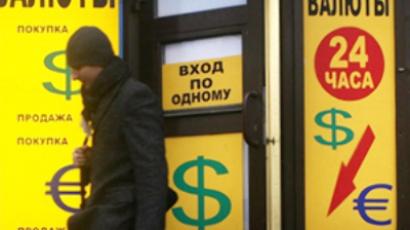Eurochem boosting fertilizer potential with new plant
Russia's leading fertilizer producer has launched an $80 mln plant to produce one of the best-used fertilizers in developed countries, adding to Russia’s export portfolio.
Part of the unusual heritage of this fertilizer company, The Molotov Cocktail, was produced at the Eurochem plant during the Second World War to provide Russian soldiers with incendiary devices against German tanks.
Some of the same components are nowadays employed in the field of food production.
Next year Eurochem will sell 130 thousand tons of this cocktail to Germany – but in a peaceful form – as one of the best fertilizers.
Granular urea – is made of natural gas, water and air – Eurochem is one of top 5 producers of the fertilizer
“We are building another production unit which will cost us 170 million dollars. It will mean we will then reach 5% of the world’s export of urea,” said Dmitry Strezhnev, CEO at Eurochem.
The company’s largest customer – one of the world’s leading traders in fertilizer, Dreymoor , will be selling Russian granular urea to the U.S, Brazil and India.
Market players believe the fertilizer market will soon rebound after prices collapsed by three quarters during the crisis.
Sandeep Chauhan, Dreymoor Fertilizers Overseas, says the future looks more promising
“It was an abnormal year. Prices were hypothetically jacked up for all commodities, especially for petrochemical products, oil products, fertilizers, metals, anything. Now we feel demand will be growing by 8-10% per annum. We hope this increase in demand, the prices will go up a little bit.”
Shares of the world’s largest fertilizer producers Mosaic and Potash gained sharply this week after analysts at Goldman Sachs said, they expect just such a recovery in 2010.
A Chinese contract for potash from the Belarusian Potash Co. could be priced as low as $300 per ton. As buyers have been waiting for an effective price floor, the news could lead to a sharp rise in demand.













